
The Lee-Enfield No. 1 Mk. III was the standard British service rifle in 1914. The superb infantry of the British Expeditionary Force could lay down a field of fire comparable to massed machine guns.
Ever since men began fighting in organized groups, strategic thinkers have been looking for ways to overcome enemy infantry. From the beginning, the armed man has been the military unit that wins battles – alone, or in small or large groups. No one has ever won a war without infantry, but strategists keep searching.
The first infantryman was a man with a club, then a spear, then a sword and shield; this progressed to bows, crossbows and finally muskets and rifles. Initially deployed in small bands, later formed into cohorts and legions, eventually infantry was organized in sections, platoons and battalions. Always, though, the essential element was the individual and his personal weapon.
In September, the Economist published an article about the future of warfare, focusing particularly on technological developments to make infantry more effective. The U.S. is spending big to develop tools of “enhanced reality.”
The immediate objective is an infantryman’s helmet with a clear visor and headphones. The visor will serve as a screen, with digital information constantly displayed in the man’s line of vision, relayed by a computer attached to the chest. This would include the distance to whatever the soldier is looking at, following his eye movement and projecting the information immediately. There would also be warnings of enemy activity spotted by drones or satellites, flashed onto the visor in real time.
One outfit is even working on contact lenses to provide the same information, able to track the slightest eye movements, with no helmet required.
This story is from the {{IssueName}} edition of {{MagazineName}}.
Start your 7-day Magzter GOLD free trial to access thousands of curated premium stories, and 9,000+ magazines and newspapers.
Already a subscriber ? Sign In
This story is from the {{IssueName}} edition of {{MagazineName}}.
Start your 7-day Magzter GOLD free trial to access thousands of curated premium stories, and 9,000+ magazines and newspapers.
Already a subscriber? Sign In
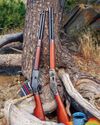
CIMARRON .32-20 Short Rifle & Carbine
In the heyday of Winchester Repeating Arms Company lever guns, it offered muskets, standard rifles, short rifles and saddle ring carbines.
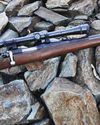
Remington's Model 722 and .222 Cartridge
It's easy enough to define what a varmint is, those pesky critters that tear up pastures, flower beds and all kinds of expensive crops people need for various reasons - most importantly, to make a living and/or something with which to feed themselves.

Coyote Bullets
What is Best for You?
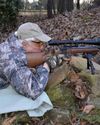
Remington's 5mm Rimfire Magnum
Shooting a Classic
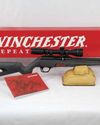
Winchester's New Wildcat
The Ultralight Rimfire Varmint Rifle
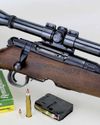
.223 Remington from .30-30 Winchester?
Multitasking for Varmints

LOADS FOR A .22 TCM
The .22 TCM first appeared commercially in 2012, chambered in a Rock Island Armory 1911-style handgun.
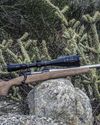
Everybody Loves Velocity
The 4,500-fps WSSM Project
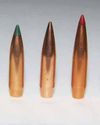
A BOLT-ACTION FRANCHI 224 VALKYRIE
Testing New Loads

.22 Winchester Magnum Rimfire
Shooting Revolvers